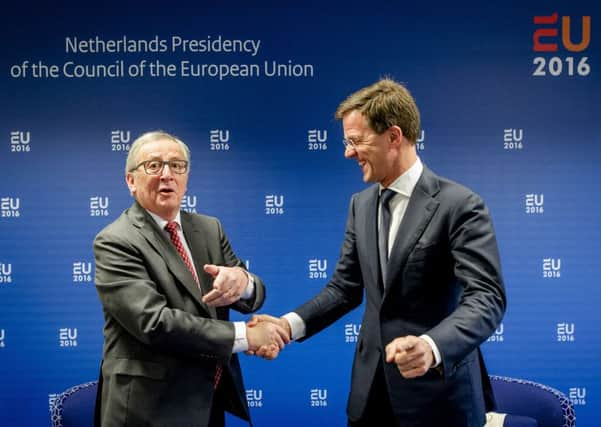Alex Orr: Netherlands presidency at critical time for Europe


At the beginning of this year the Netherlands took over the presidency of the European Union, and there can hardly be a more critical time in the EU’s history for it to take the helm.
The presidency, which lasts until the end of June, will seek to address current challenges facing the EU, of which there is no lack. These include the migration crisis, the UK referendum on EU membership and the fight against terrorism.
Advertisement
Hide AdAdvertisement
Hide AdIn this role, the Dutch presidency will shape policies and drive forward legislation that will affect the futures of around 500 EU million citizens, boosting growth and job creation through innovation, and delivering security.
The presidency work programme focuses on four key areas: Europe as an innovator and job creator; migration and international security; sound finances and a robust eurozone, and climate and energy policy.
As such its outcomes will clearly have an impact on Scotland –around half our international exports are destined for the EU, on which 330,000 Scottish jobs are dependent, and climate change is an issue that affects us all.
The EU provides the biggest internal market in the world and is pledged to innovate in order to grow stronger and more competitive. In this respect, the Dutch are looking for red tape to be cut and rules that operate throughout the EU to be simplified and modernised, reducing bureaucracy and thus costs. This will clearly help Scottish businesses and consumers, as will a renewed focus on greater cross-border co-operation in research and development.
There is also the small matter of the UK’s renegotiation of its relationship with the EU, and an In-Out referendum, to be held before the end of 2017. As well as this is the desire to deliver common border controls and a co-ordinated asylum and migration policy as a solution to the refugee crisis.
While EU presidencies can be seen as rather distant affairs, its outcomes should clearly be followed with interest.
• Alex Orr is a board member of the European Movement in Scotland